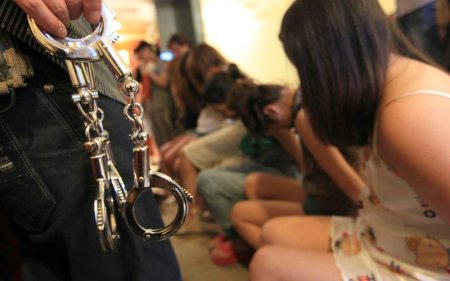Christian charity helps over 6K sex trafficking survivors find safety, healing

In the last 12 years, a faith-based organization has worked with thousands of sex trafficking survivors to guide them toward a place of healing thanks to three women who heard horrendous stories and decided they wanted to make an impact.
Selah Freedom was founded in 2011 after one of its founders, Laurie Swink, heard stories about trafficking victims and realized they needed a safe place to recover. Unable to sleep due to the weight of the issue on her heart, Swink founded the nonprofit alongside two other women.
"So that's how Selah Freedom got started," Executive Director Stacey Efaw told The Christian Post in an interview. "Three women hearing about a horrible issue and deciding they were going to make a change."
The nonprofit is based in Florida and the Midwest, offering a variety of resources to survivors, including counseling services and a safe environment through its residential program.
Since the organization's founding in 2011, Selah Freedom has helped more than 6,000 trafficking survivors.
Efaw said individuals can still go through the program without living at the organization's facility in Florida if they already have a safe place to stay as they go through the experience. The executive director said that Selah Freedom currently has 40 women and one man receiving counseling through the organization without living on campus.
The cost of trafficking victims going through the entire program Selah Freedom offers, which includes housing, is $100,000 a year per survivor.
According to Efaw, Selah Freedom partners with various agencies in the United States, including the National Trafficking Shelter Alliance. While a majority of the nonprofit is government-funded, the organization also receives financial support from individual donors, and raises money through fundraising events.
Local police departments that work with Selah Freedom provide the nonprofit with referrals to help it connect with human trafficking survivors.
"If there's a prostitution sting, we'll go out with them on the sting," Efaw said. "Often, that's where survivors are found. We go into the jails weekly and have jail groups, and anybody who has been arrested for prostitution, we meet with."
Efaw said that trafficking victims may also call the organization through its hotline after receiving a referral through another network.
Selah Freedom has two campuses. One is a short-term campus, where all participants stay for six to nine weeks before they are presented with the option of transferring to a long-term facility.
Some survivors may prefer to leave the area, as the location may be the site where they were trafficked.
Many of the participants at the short-term campus typically were in a detox shelter or jail before coming to the facility, according to the director. During survivors' stay at the short-term housing facility, the staff allows them time to process everything while gradually counseling them as they contemplate their next steps.
"Sometimes we get survivors that have been arrested for prostitution, and then later, after working with them, they'll admit that they were being trafficked," Efaw said. "They're often very afraid to admit it."
Efaw said the counseling services the group offers range from trauma therapy to regular mental healthcare that deals with treating complex emotions, such as anger, and guiding the survivors on how to build healthy relationships.
"And then we have group therapy, too, which is helpful," Efaw said. "We also have a spiritual counselor if they want to focus on their relationship with God, or they are just looking to explore that area."
The organization is open to helping people of all faiths, Efaw said, and women can still receive their help even if they're not Christian. She estimated that about half of the women who go through the program attend church, and if they desire a more spiritual component, the option is there, but it's not forced on them.
"They need someone that loves them, is not judging them," Efaw said about the more secular survivors the organization has helped. "And we just try to show God's love through our work."
Samantha Kamman is a reporter for The Christian Post. She can be reached at: samantha.kamman@christianpost.com. Follow her on Twitter: @Samantha_Kamman





















